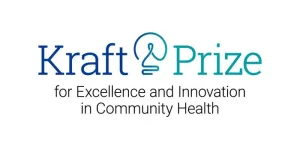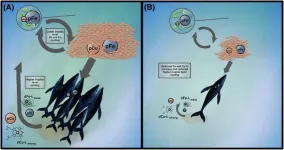(Press-News.org)
SCOTTSDALE, Ariz. — Feb. 6, 2025 — Michael S. Gordon, M.D., Chief Medical Officer of HonorHealth Research Institute, today was named a Fellow of the American Society of Clinical Oncology (FASCO), the world’s leading professional organization for physicians and oncology professionals caring for people with cancer.
“The title of FASCO is a recognition bestowed upon ASCO members who have shown extraordinary dedication for their voluntary efforts that benefit the Society, the specialty of oncology, and most importantly, the patients whom we serve,” according to a letter signed by Clifford A. Hudis, M.D., FASCO, ASCO’s Chief Executive Officer.
Mark Slater, Ph.D., Vice President of Research for HonorHealth and CEO of HonorHealth Research Institute, said that without question Dr. Gordon deserves ASCO’s FASCO recognition.
“Dr. Gordon is a powerhouse of innovation whose impact on the quality of research practiced at our Research Institute is beyond measure,” Dr. Slater said. “His FASCO recognition reflects the high degree of caring and compassion for our patients, which he imbues in all of our advanced clinical trials. Plus, he is a highly effective ambassador for the Institute as we navigate our multitude of biomedical science collaborations.
“Dr. Gordon’s remarkable record of accomplishment in advancing new therapies provides hope for cancer patients, reflects his scientific and clinical leadership, and embodies an Institute model of the innovative physician-scientist,” Dr. Slater said. “Dr. Gordon is a recognized leader in the field, attracting patients and collaborators from across the globe to HonorHealth Research Institute to advance tomorrow’s cancer innovations today.”
Dr. Gordon has served as the Chief Medical Officer of the HonorHealth Research Institute since 2021, helping supervise the Research Institute’s five major divisions governing Cancer, Cardiovascular Disease, GI/Bariatrics, Neuroscience and Multispecialty research.
He also is the Research Director of the Multispecialty Research Division, which includes pulmonology, rheumatology, infectious disease (including COVID-19), and other emerging areas of biomedical research. And, as part of the medical staff at HonorHealth since 2000, Dr. Gordon has served on numerous committees servicing the Research Institute’s Clinical Trials Programs.
Dr. Gordon said he was honored and humbled to have been selected as an ASCO Fellow and to have received the vaunted designation of FASCO.
“It is indeed a privilege to be mentioned among some of the nation’s and world’s leading oncologists,” said Dr. Gordon. “I have to believe that this recognition is due in large part to the amazing body of work compiled by all of my extremely talented colleagues at HonorHealth Research Institute.”
Dr. Gordon’s record of leadership
Dr. Gordon is a respected innovator and leader in a variety of biomedical research areas and has helped develop a number of new cancer treatments. He is a board certified specialist in both solid and blood cancers, approaching his work from a unique perspective: not only as a physician, but also as a scientist and as patient, having been diagnosed and treated for an early stage pancreatic cancer in 2021. His overarching goals are to promote not only the best science but also provide the best care for patients.
He also has served in key leadership capacities for the Arizona Center for Cancer Care, the University of Arizona Cancer Center and the University of Arizona College of Medicine-Phoenix.
Prior to moving to Arizona, Dr. Gordon worked and trained at major institutions, including: Indiana University School of Medicine, Cornell University Medical College, Memorial Sloan-Kettering Cancer Center, and the University of Chicago Hospital and Clinics.
Dr. Gordon’s new FASCO title will be recognized May 31 at the 2025 annual meeting of ASCO at McCormick Place Convention Center in Chicago.
Founded in 1964 and based in Alexandria, Vir., ASCO represents a network of more than 50,000 oncology professionals worldwide dedicated to providing the highest-quality resources in education, policy, the pioneering of clinical research, and advancing care for patients with cancer.
# # #
About the HonorHealth Research Institute
HonorHealth Research Institute is an international destination that is at the forefront of providing patients with a better quality of life through its clinical trials and innovative treatment options. Headquartered in Scottsdale, Arizona, the institute’s team of physicians and researchers collaborate with experts from across the nation to offer life-changing therapies, drugs and devices. At HonorHealth Research Institute, patients have access to tomorrow’s health innovations, today. Learn more at: HonorHealth.com/research.
END
AMES, Iowa – A farmer notices an unfamiliar insect on a leaf.
Is this a pollinator? Or a pest? Good news at harvest time? Or bad? Need to be controlled? Or not?
That farmer can snap a picture, use a smartphone or computer to feed the photo into a web-based application called InsectNet and, with the help of machine learning technology, get back real-time information.
“The app identifies the insect and returns a prediction of its taxonomic classification and role in the ecosystem as a pest, predator, pollinator, parasitoid, decomposer, herbivore, indicator ...
Restoring Predators, Restoring Ecosystems: Yellowstone Wolves and other Carnivores Drive Strong Trophic Cascade
Corvallis, OR — February 6, 2025 — A new study reveals the profound ecological effects of wolves and other large carnivores in Yellowstone National Park, showcasing the cascading effects predators can have on ecosystems. In Yellowstone, this involves wolves and other large carnivores, elk, and willows. The research, which utilized previously published data from 25 riparian (streamside) ...
The domestication of maize is one of the greatest examples of humankind’s impact on evolution. Early farmers’ pre-industrial plant breeding choices turned corn from a nearly inedible crop into the major global food source it is today.
Now, Cold Spring Harbor Laboratory Professors Rob Martienssen and Thomas Gingeras are uncovering the genetics behind choices farmers made 9,000 years ago. They aim to better understand how evolution works and to help today’s farmers update corn so it can grow in harsh conditions. To ...
Boston, MA – Today, the Kraft Center for Community Health at Mass General Brigham announced the launch of the inaugural Kraft Prize for Excellence and Innovation in Community Health. This national prize seeks to honor a transformative organization, program or innovation that is making a measurable impact on health outcomes and has the potential to become a scalable model for addressing community health.
“We established The Kraft Center for Community Health with a mission to expand access to high-quality, cost-effective healthcare for medically underserved patients, families, and communities,” ...
The blue whale is the largest animal on the planet. It consumes enormous quantities of tiny, shrimp-like animals known as krill to support a body of up to 100 feet (30 meters) long. Blue whales and other baleen whales, which filter seawater through their mouths to feed on small marine life, once teemed in Earth’s oceans. Then over the past century they were hunted almost to extinction for their energy-dense blubber.
As whales were decimated, some thought the krill would proliferate in predator-free waters. But that’s not what happened. Krill populations dropped, too, and neither population has ...
Fish is a high-quality source of protein, containing omega-3 fatty acids and many other beneficial nutrients. However, the accumulation of toxic mercury also makes fish consumption a concern, of which tuna is particularly susceptible. Researchers from Chalmers University of Technology in Sweden have come up with a novel approach to packaging canned tuna infused in the water-based solution of amino acid cysteine. It was shown to remove up to 35 percent of the accumulated mercury in canned tuna, significantly reducing human exposure to mercury via food.
Fish and other seafood, provide people with a broad variety of essential nutrients in their diet However, the consumption ...
Epoxy resins are coatings and adhesives used in a broad range of familiar applications, such as construction, engineering and manufacturing. However, they often present a challenge to recycle or dispose of responsibly. For the first time, a team of researchers, including those from the University of Tokyo, developed a method to efficiently reclaim materials from a range of epoxy products for reuse by using a novel solid catalyst.
There’s a high chance you are surrounded by epoxy compounds as you read this. They are used in electronic devices due to their insulating ...
Searching for life in alien oceans may be more difficult than scientists previously thought, even when we can sample these extraterrestrial waters directly.
A new study focusing on Enceladus, a moon of Saturn that sprays its ocean water into space through cracks in its icy surface, shows that the physics of alien oceans could prevent evidence of deep-sea life from reaching places where we can detect it.
Published today (Thursday, 6 February 2025) in Communications Earth and Environment, the study shows how Enceladus's ocean forms distinct layers that dramatically slow the movement of material ...
A recent Brazilian study published in Nature Cardiovascular Research has highlighted promising pathways for preventing and treating atrial fibrillation, a condition that significantly raises the risks of stroke and dementia. The research was led by the Federal University of Rio de Janeiro (UFRJ) in partnership with the D’Or Institute for Research and Education (IDOR).
What Is Atrial Fibrillation?
Atrial fibrillation (AF) is the most common cardiac arrhythmia worldwide. It disrupts the normal rhythm of the heart, causing irregular and often rapid heartbeats. This condition is associated with increased risks of stroke, dementia, and heart failure. It is also linked to other health ...
How would you summarize your study for a lay audience?
Heart failure remains a substantial burden for patients due to its high prevalence and limited therapeutic options. Heart failure is classified into two major clinical subtypes— heart failure with preserved ejection fraction (HFpEF) and heart failure with reduced ejection fraction (HFrEF). While there have been significant therapeutic advances in HFrEF, the rate of complications and death from HFrEF remains high. Additionally, most drugs that have shown benefits for patients with HFrEF have not demonstrated a comparable benefit in patients with HFpEF, highlighting a critical need for the development of targeted therapies ...






